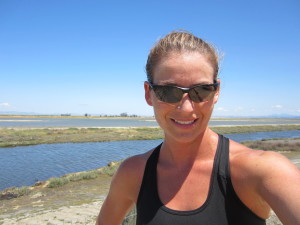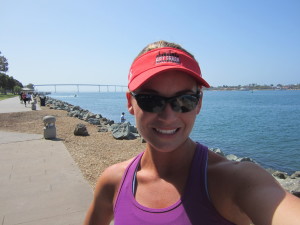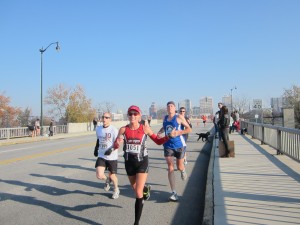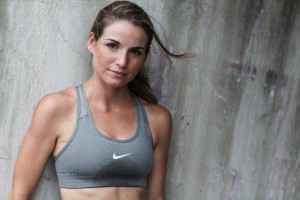The weeks and months leading up to a big race are sometimes the most exciting months you can experience. It’s like waiting for potential college acceptance letters to arrive in the mail, or the anticipation of a birthday party or Christmas for a child. However, unlike those exciting events, the weeks leading up to a goal race include lots of training, hard work, and focus. There is no sitting back and waiting for the big day. Instead, you are actively pursuing your goals.
Two years ago, when I was training for the Back on My Feet 20 in 24, fear of the unknown drove me to train. Having never attempted a 24-hour race before, the unknown can light a fire of fear under one’s ass. You expect race day to hurt, to be hard, and to be something you are hopefully prepared for – thanks to your training. This time around, I know my weaknesses in this kind of race. Perhaps I should be even more scared this time around because now I know how badly I can fall apart, but I am strangely confident in what needs to be done between now and July 19th. I know I need to put in a lot of work, and instead of fearing the pain and fatigue, I welcome it. I welcome the challenge of staying focused and of playing with hydration and fueling. Instead of being driven by fear, and I am driven by redemption.
Two years ago I was training like a reckless runner. Slamming my legs on the track once per week, powering through tempo runs once per week, clocking 50-mile weekends, and peaking at 80+ mile weeks. My body was stressed too hard too frequently. Aches and pains became an issue, especially in my left ankle. I would ice it or rest it for a day, and then take it for a spin on the track. For my body, it was simply too much. This time around, I am not on the track and am not running many tempo runs. My fastest miles have been on par with my slowest at the Philly Marathon. I have realized and learned from my own experiences that if I want my mileage to comfortably hit 80-100 mile weeks, I simply cannot be running any of those miles hard. The lesson here is that if we learn from our mistakes, those mistakes are worth making.
While I still have eight weeks before the big day to make progress, there’s obviously the chance that between now and then some aches and pains could creep back in. However, as of the day this blog goes up, I feel pretty darn good. No ankle pain, no heel pain, and the IT band that sometimes acts up seems to loosen and relax a few miles into my runs. It has taken me a long time, but I am finally looking at the challenge of an Ultra like an Ultra runner – not a mid-distance or marathon runner. I am hoping that mental shift and change in training is what will make the difference.
I encourage you to try new race distances and new challenges, but to also realize that every distance and challenge presents its own unique problems, requirements, and adaptions in your physical and mental training. This can be exciting, fun and fresh. It also requires some caution, trial and error.









